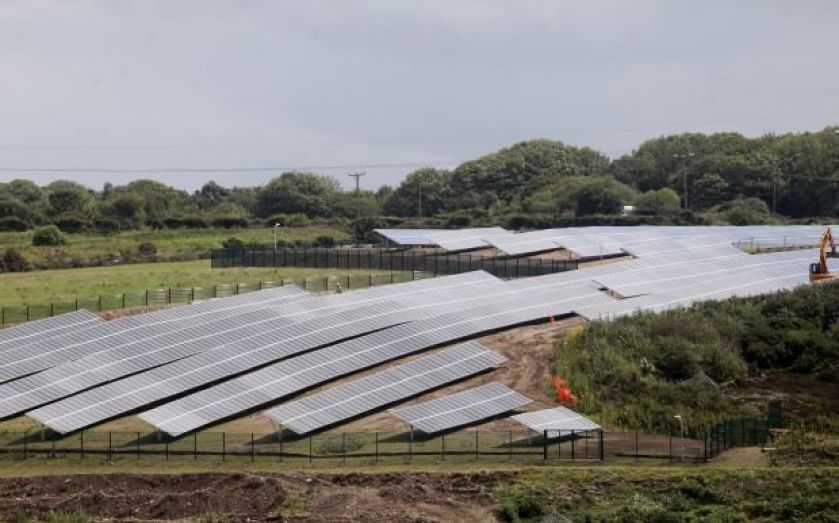The number of solar farms in the UK increased 12 per cent last year, from 2,250 in 2019/20 to 2,510 last year, according to new data shared today.
This growth is coming from farmers who are increasingly using their land to erect solar farms. Converting this land to be used as solar farms offers a stable, long-return for landowners, in the face of volatile crop prices and the end of agricultural subsidies, said law firm EMW, which compiled the numbers.
From 2021, the £1.6bn subsidies that farmers receive for owning or renting land will begin to be phased out, ending entirely by 2028.
The government is aiming to hit climate change goals outlined in the Paris Agreement and encourage more renewable energy projects.
National planning policy supports the development of solar farms and even on green belt land, the wider environmental benefits associated with increased production of energy can qualify as very special circumstances. This has helped to contribute to the rise in new solar projects being opened, explained Marco Mauro, Legal Director at EMW.
Investment
A contributing factor to the growth of solar farms is the increasing amount of investment available for projects.
Over 20 green energy funds now are listed on the London Stock Exchange, worth a total of more than $10bn. Over the last five years, the market capitalisation of these funds has increased over 200 per cent.
“There are also a great deal more potential sites for solar projects, with agricultural landowners becoming much more open to using land for solar generation instead of crops. That is only likely to increase in the coming years,” he added.
Public opinion
Public opinion has shifted in favour of more renewable energy projects in recent years, as climate change moves up the news agenda.
This is also contributing to less opposition to renewable projects than in previous years, Mauro said. Solar farms also tend to be more acceptable to the public than wind farms due to being less noticeable and noisy.
If the application has been properly prepared and the proposal is intended to be located in an area that is not overly sensitive there is usually a good chance of that project securing approval, he added.

